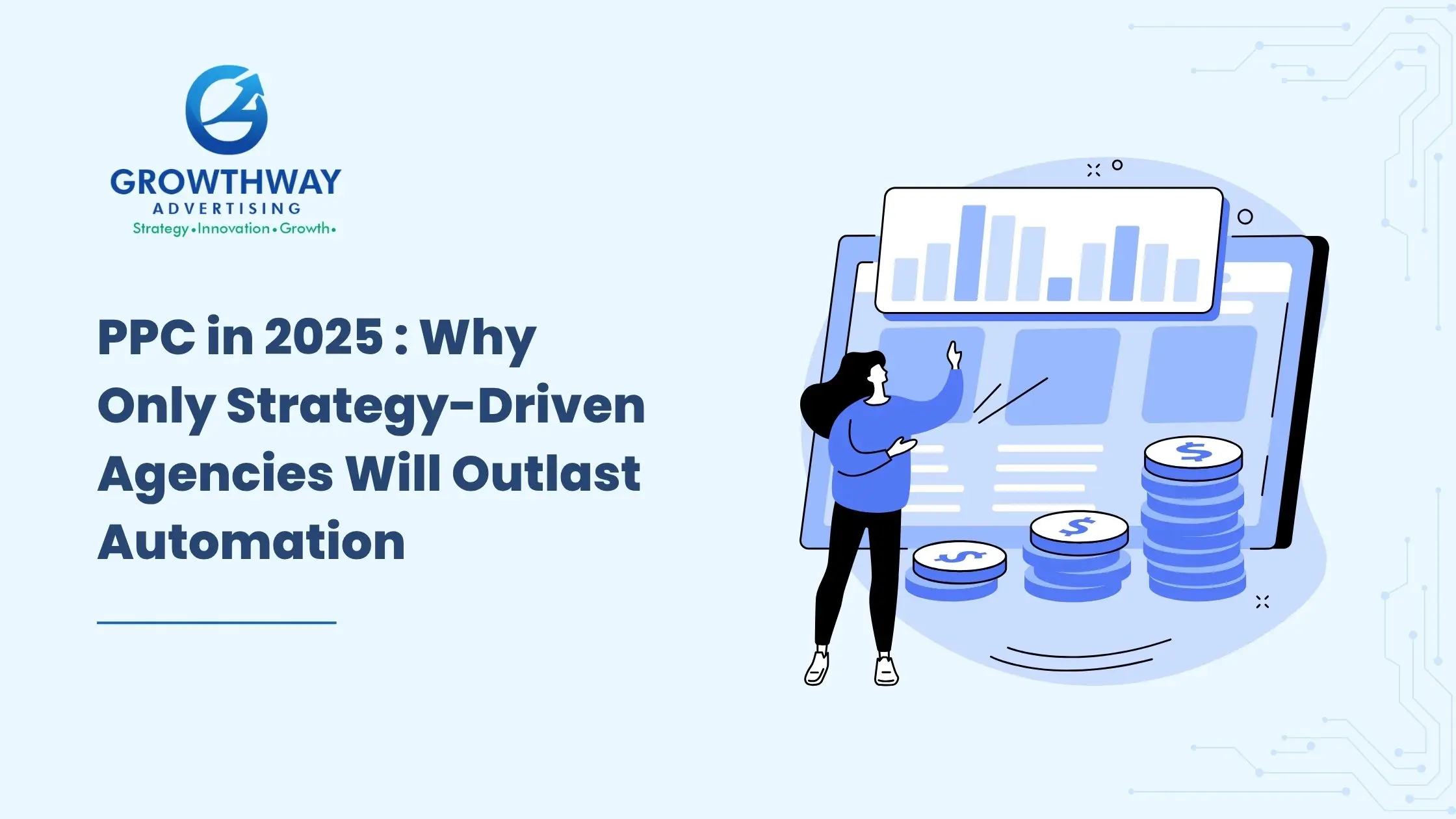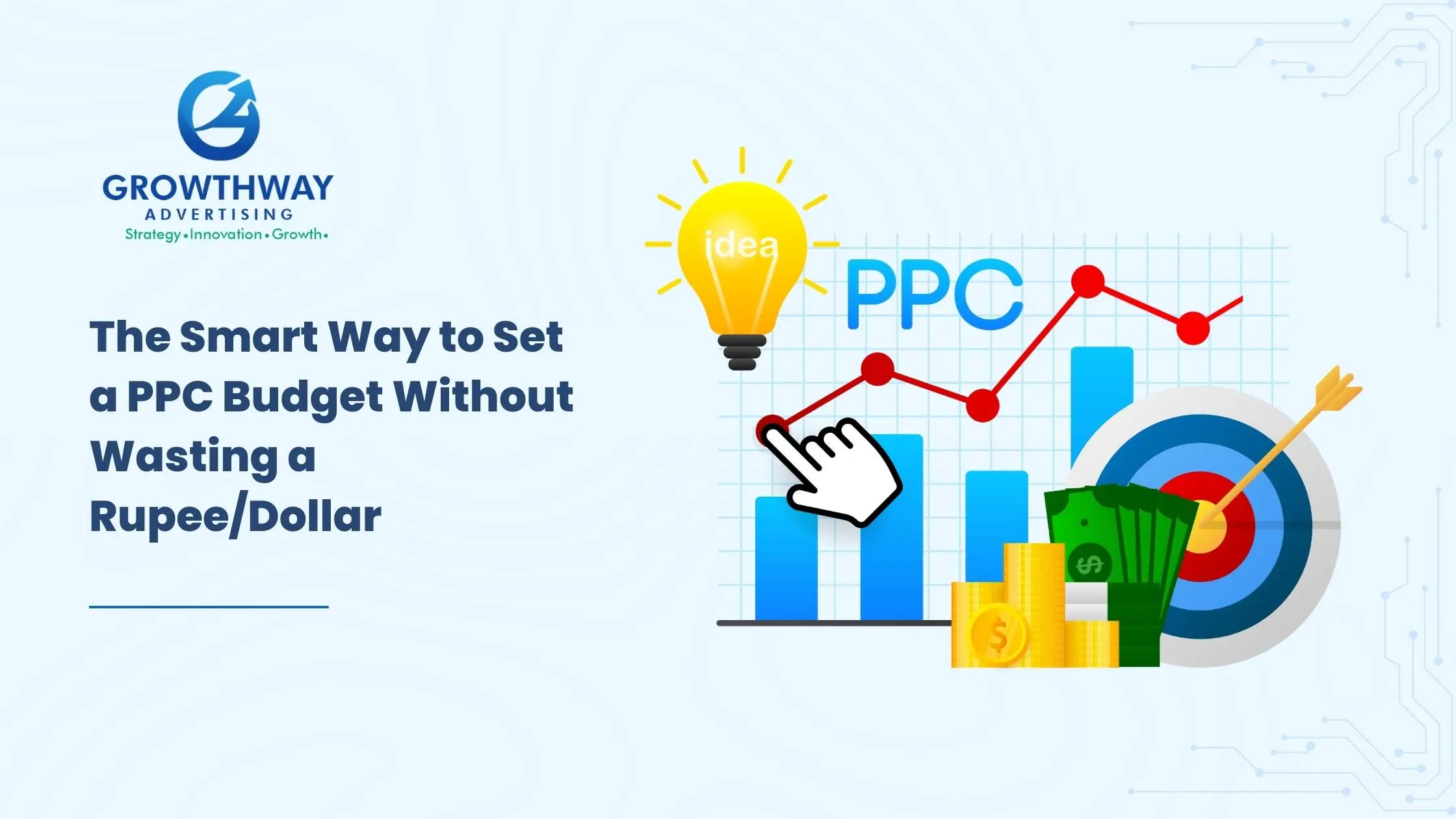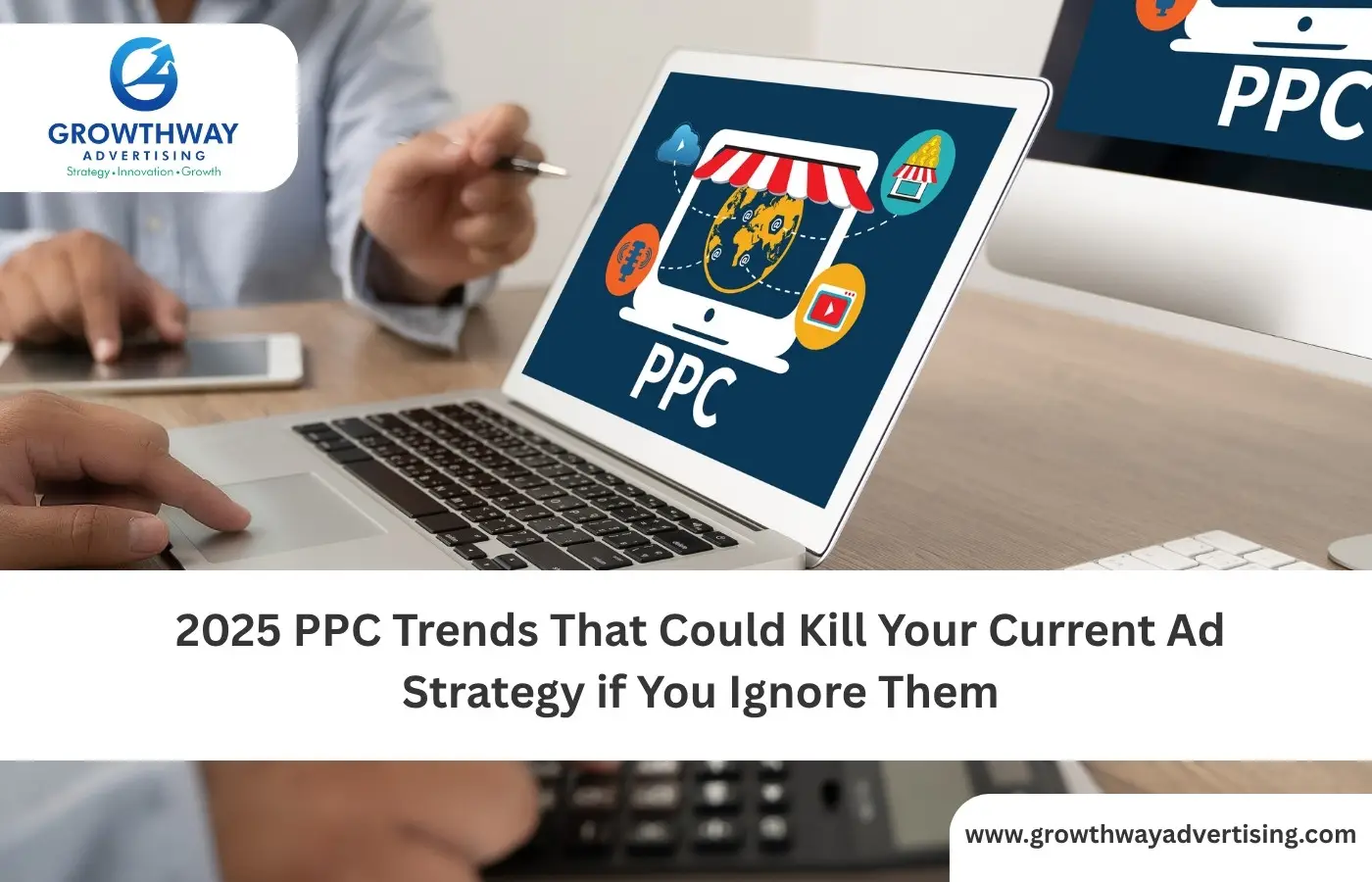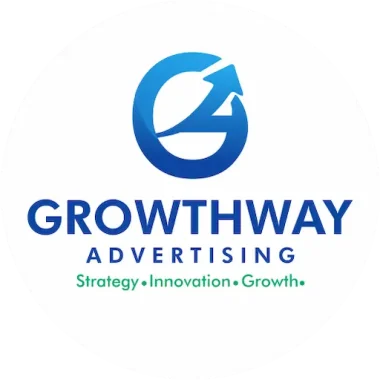By 2025, PPC automation has transformed digital advertising. Marketers now rely on AI bidding, responsive search ads, and machine-learning optimization to scale faster and analyze data more precisely. Yet this convenience has created a new challenge: sameness. When everyone uses the same algorithms, ad campaigns start to look and perform alike. The once-competitive advantage of automation now leads to a crowded, uniform marketplace.
To stand out, agencies must go beyond clicks and conversions, they must build strategies that connect with human nuance and brand identity. Automation runs processes, but it doesn’t understand emotion, intent, or creative context. That’s where strategy-driven PPC agencies are proving their worth in 2025: by combining AI’s scale with human insight to deliver measurable brand differentiation.
Automation Saturation: The Double-Edged Sword
There’s no denying that AI in advertising has made campaign setup effortless. Smart Bidding, Performance Max, and automated ad copy generation reduce manual work and allow marketers to focus on broader performance goals. However, this increasing automation also leads to a paradox. As algorithms optimize for the same objectives CTR, CPA, or ROAS campaigns start producing similar results across competitors.
Relying solely on automation risks performance plateaus. Without human oversight, brands lose control over creative direction, audience messaging, and adaptive testing. For instance, two retailers using identical automation settings might bid on the same keywords, show similar copy, and compete for the same customers canceling each other out. In this environment, success depends not on the tools, but on the strategic depth behind their use.
The challenge for every PPC agency today is not adopting automation, but mastering it through strategy and differentiation.
The Strategic Human Advantage
What automation does in seconds analyzing bids or testing creatives still lacks emotional and contextual reasoning. Humans bring something machines can’t replicate: intent-based thinking and empathy-driven messaging. A strategist can interpret why an ad resonates in one demographic and fails in another, or why a message converts better in a specific season or cultural moment.
Strategy-driven PPC campaigns rely on deeper insights, such as:
- Crafting layered audience segments based on psychographic triggers, not just keywords.
- Designing creative frameworks aligned with brand values and long-term storytelling.
- Applying cross-channel learning between search, social, and programmatic campaigns to create predictive synergy.
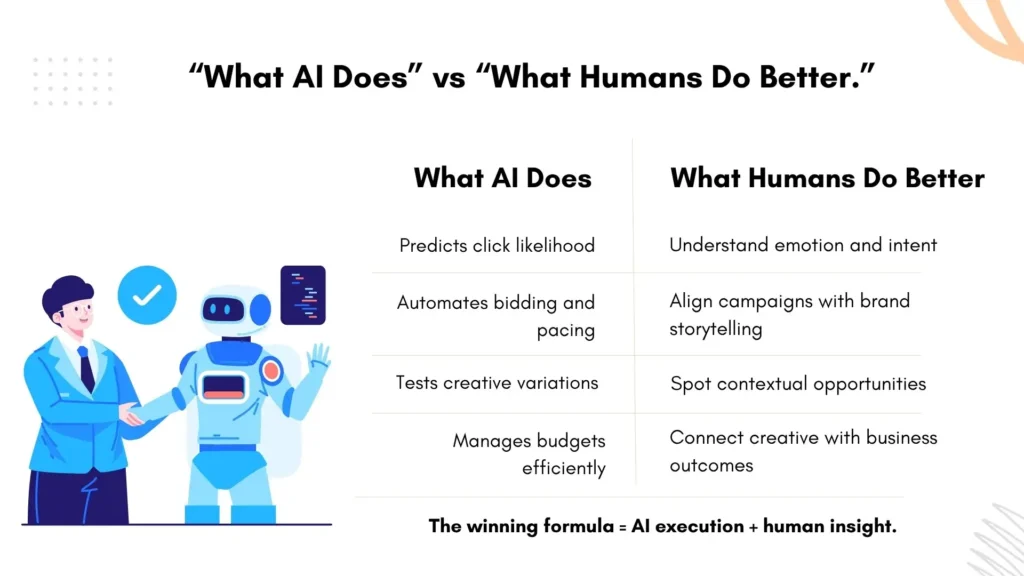
Machine learning can predict click likelihood, but only a strategist can align those clicks with business outcomes. This is why leading ppc marketing services now position human analysis as their differentiator. The agencies thriving in 2025 use AI tools as co-pilots, not drivers.
What Leading Agencies Are Doing Differently in 2025
Top ppc services in 2025 focus not on automation volume but intelligence value. They treat technology as an enhancer rather than a replacement, combining it with deliberate data and creative systems.
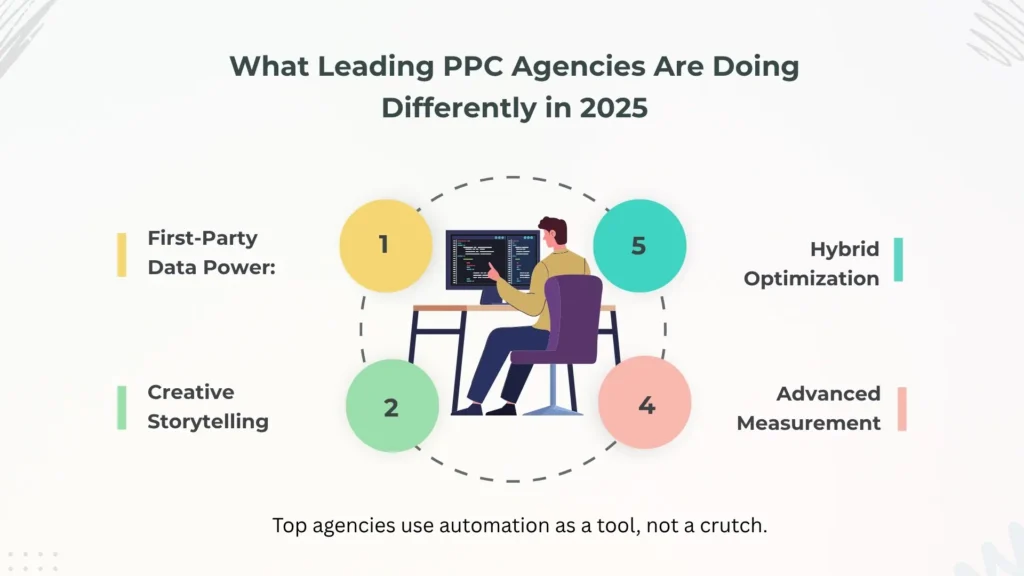
- Using first-party data and predictive analytics
With third-party cookies nearing extinction, successful agencies are building strong first-party data ecosystems. They leverage predictive analytics to anticipate customer intent and personalize campaigns long before an ad impression is served. - Integrating storytelling into creative strategy
Rather than producing one-size-fits-all ad copies, modern marketers infuse brand identity into every asset. An emotional brand message, paired with dynamic visuals, consistently outperforms generic AI-generated ads. - Adopting hybrid optimization models
The smartest ppc agency services merge human intuition with automation. For example, strategists define campaign parameters and messaging while AI continuously tests variables and reallocates budget. This approach ensures artistic control while sustaining algorithmic efficiency. - Advanced measurement frameworks
Agencies are moving beyond CTR and ROAS to evaluate customer lifetime value and incrementality. This long-term measurement mindset signals a shift from transactional performance to business growth impact.
By 2025, the most successful agencies are not just managing ads, they’re shaping business narratives powered by intelligent automation and guided by strategic human thinking.
Key Industry Insights & Expert Predictions
Recent insights from Google Ads 2025 and eMarketer’s PPC Trends report paint a clear picture of where the industry is heading:
- Manual bidding is disappearing, with over 85% of campaigns using AI bidding systems. Yet average CPCs are up by 14%, proving that automation hasn’t reduced costs, it’s just made competition faster.
- Creative experimentation is back in focus. Google’s latest models reward variation and narrative alignment. Static templates no longer sustain engagement.
- ROI-based performance models are replacing click-based metrics. Agencies now get measured on business outcomes like qualified leads or revenue lift rather than raw CTRs.
- Cross-channel attribution has become critical. With privacy updates limiting direct tracking, strategists must connect dots using modeled conversions and predictive data rather than last-click results.
The takeaway: even as automation takes over the mechanics, strategy defines the results. Agencies that master storytelling, brand synergy, and data synthesis are the ones setting benchmarks.
How to Stay Ahead as a Strategy-Driven Marketer
If you’re managing ppc marketing services or running campaigns in-house, here’s how to stay ahead in 2025’s automated landscape:
1. Reinvest time saved by automation into audience strategy.
Automation saves hours and uses them wisely. Deep-dive into who your audience is, not just what they click. Build personas around motivations, not metrics.
2. Create your own data frameworks.
Don’t rely solely on platform dashboards. Build custom tracking setups that merge sales, CRM, and analytics data. The more proprietary your insights, the more leverage your paid search strategy has.
3. Treat automation as an assistant, not a substitute.
Think of AI as your analyst, not your strategist. Let it optimize bids and budgets, but you decide the narrative, direction, and success metrics.
4. Embrace creative diversity.
Run multiple message themes simultaneously. Don’t let AI decide “the best” and too early winners often fade fast. Keep testing tone, visuals, and emotional triggers.
5. Train your team for hybrid intelligence.
Upskill teams to interpret AI insights while applying creative reasoning. The most valuable PPC specialists in 2025 are fluent in both data science and storytelling.
Modern ppc agency leaders who adopt this mindset will not only adapt to automation, they’ll outperform it. The ultimate edge lies in translating machine learning into meaningful marketing intelligence.
The Human Future of PPC
As automation continues to accelerate, the agencies poised to thrive will be those that blend technical precision with strategic foresight. PPC success in 2025 is no longer about who has access to the most advanced tools but about who knows how to use them with purpose.
Strategy-driven PPC is the new gold standard. It places creativity, context, and customer understanding at the heart of every decision. Automation will always execute, but strategy gives direction. The future belongs to agencies that can bridge the two delivering campaigns that are efficient, intelligent, and unmistakably human.
FAQ’s
PPC automation refers to the use of AI-driven tools for bidding, targeting, and optimizing campaigns, which in 2025 has become more advanced but also more ubiquitous, driving the need for strategic differentiation.
Because automation focuses on optimization, not innovation. In 2025, everyone has access to the same smart tools, which means only strategy-driven PPC campaigns backed by creativity, brand insight, and human judgment stand out.
Google Ads 2025 is heavily AI-driven, with automated bidding and creative systems dominating campaign management. Manual control has decreased, but the need for strategic oversight and creative direction has increased.
Not yet and likely not ever. AI handles repetitive optimization tasks well, but it lacks emotional intelligence and contextual understanding. Humans bring creativity, empathy, and strategic foresight that machines can’t replicate.
PPC remains cost-effective if campaigns are strategically managed, focusing on efficient targeting, creative differentiation, and utilizing automation without relying exclusively on it.

